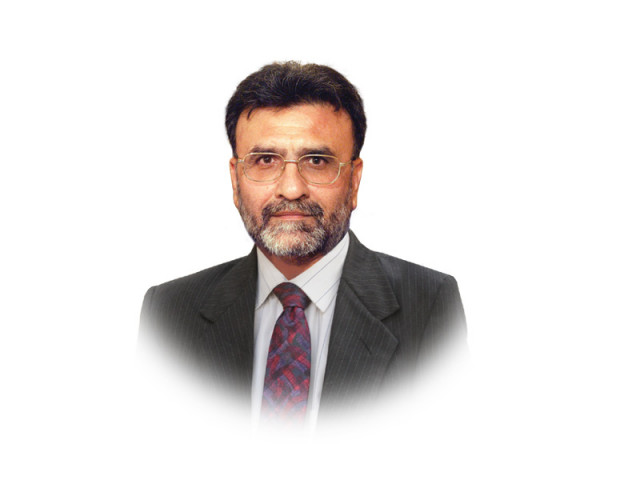What is in it for Shaukat Aziz?
Shaukat Aziz played important role in building tension points which forced Mansoor Ijaz to give up coming to Pakistan.

All of us presumed that he might opt to convey business-as-usual feel about him by managing the opportunity to speak in the assembly. Eventually, he did turn up, but preferred to speak only for explaining the constraints forcing his government to go for a massive price increase of the petroleum products.
Before coming to the assembly, Gilani had been staying put in the PM house along with Chaudhry Aitzaz Ahsan. The core committee members of the PPP were also present there to brainstorm for a strategy to deal with the contempt of court charge that would formally be put against Gilani on February 13.
I have yet to double check, but a highly reliable source told me that, being a seasoned and cool-headed lawyer, Aitzaz continued to plead the position that the prime minister must avail all possible means of securing some relief from the Supreme Court while briefing the meeting at the PM House.
Instead of saying an instant ‘yes’ to this suggestion, Gilani kept reacting with let-us-finish-with-it type irritation. Often, he also turned delirious with the mindset of a wounded heart. The signals, so far, clearly suggest that, instead of going for an appeal against Thursday’s decision of a seven-judge bench, Gilani’s instincts were forcing him to contest the contempt charge. It is too early to find out what he decides in the end.
Two senior politicians, who, of late, have been regularly meeting the prime minister for elaborate and informal dinners, have told me that Gilani seemed determined to end up like a victim. He and Zardari want to construct a narrative to make us believe that their opponents failed to beat them by employing political tools only. In the end ‘other means,’ howsoever constitutional and legal, were to be used to get them.
On a personal level, Gilani also is very keen to show it to the world that not all Seraikis with a feudal background bend before forces that be and betray friends. “I am certain that he (Gilani) will never act like Leghari (the former president who dismissed the second Benazir government),” is the sentence that President Zardari has been consistently using before his visitors for the past four weeks.
Before Gilani’s reaching the house, the MQM targeted the petroleum minister to please its middle class supporters. The PML-N remained indifferent to its calling-attention notice. Ahsan Iqbal had a draft of a formal resolution to demand immediate cancellation of the recent hike in the price of petroleum products. Around 150 members of the National Assembly, including many who otherwise sit on the government benches, had signed it. Chaudhry Nisar Ali Khan was all set to lead the noise making on the proposed resolution and all his supporters continued to act according to the script. Ahsan’s resolution got passed in the end with a thumping majority. I have doubts, however, that it will help the hapless consumers in the end. But politicians have to play games to score points and the PML-N is pretty good at it.
Before finishing this piece, I have to report on an interesting, albeit unrelated, topic.
The information of a well-connected minister – passed on to me while sitting in his car on Wednesday – has begun looking increasingly credible: Former prime minister Shaukat Aziz played an important role in building tension points which eventually forced Mansoor Ijaz to give up the idea of coming to Pakistan to tell-all regarding Memogate.
Aziz reportedly operated on two counts: One was purely personal, and I will hate to reveal details. Suffice it to hint that it relates to a person who resides in the same building in Manhattan in which the former prime minister also has a penthouse. The parallel pressure was maneuvered through sources in various European banks in which the former Citibank Executive, Shaukat Aziz, had cultivated many lifelong friends. Credible leads do establish that the former prime minister played crucial role in dampening the hype related to Memogate. There is a question I have yet to find an answer to: Why Shaukat Aziz should work overtime to protect Asif Ali Zardari from an explosive scandal? At this stage, I can only wish that someone should help me in finding a convincing answer to this question.
Published in The Express Tribune, February 3rd, 2012.
Correction: An earlier version of this article incorrectly mentioned Citibank as Citybank. The error is regretted.


















COMMENTS
Comments are moderated and generally will be posted if they are on-topic and not abusive.
For more information, please see our Comments FAQ